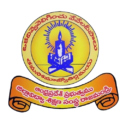ABOUT US
DISTRICT INSITITUTE OF EDUCATION & TRAINING, BOMMURU
D.I.E.T was established in November, 1989 as per the G.O.Ms.No.116, dated 27-3-1989.It is located in Bommuru which is 6 kilometres far away from Rajahmundry. The total Land area of D.I.E.T is 10.170 acres(40,468 Sq.ft approx.) in which one Administrative building and hostel was built with built area of 16,810 Sq.ft.A new building wth 4 rooms was constructed in the year 2010.As the Administrative building is in dilapidated condition another building was sanctioned with estimated cost of 2.95 crores. It was completed upto slab level only and then stopped.
A total of 25 teaching posts that is 1Principal post,7Senior Lecturers posts and 17Lecturers posts were sanctioned at the time of establishment but at present only principal and 2 regular lecturers are working in which 1 lecturer is acting as Dy.Educational Officer(FAC). 2 Gazetted Headmasters and 5 School Assistants are working on deputation. So a total of 10 teaching staff are available out of 25 Sanctioned teaching posts. and a non-teaching staff of 23 posts were sanctioned at the time of establishment in which only 16 non-teaching staff are working, out of which 1 is on Medical leave and 1 is on deputation. ELTC was also attached to this institution with 1 Officer in-charge and 2 Staff tutors posts but at present no one is working.

The purpose of education is to make good human beings with skill and expertise. Enlightened human beings can be created by teachers.
A.P.J.Abdul Kalam
Champion School at a Glance
Vision and Mission
With a vision to enhance grassroots education, our DIET colleges in Andhra Pradesh provide academic and resource support for education initiatives. Our mission empowers educators, promotes inclusivity, engages communities, fosters innovation, conducts research, offers professional development, and aims for a brighter, equitable education future.
Transactional philosophy
The education field relies on three key pillars for improvement and innovation: Training: This includes both initial induction training for new educators and ongoing training to keep experienced teachers up-to-date with the latest pedagogical approaches and technology. Resource Support: Providing teachers with essential materials, guidance, and evaluation tools. This support extends to the creation of educational resources and aids, ensuring educators have the necessary tools to enhance their teaching methods. Action Research: A systematic inquiry process undertaken by educators to address specific challenges or issues within their classrooms or institutions. This approach involves identifying problems, planning interventions, taking action, collecting data, reflecting on outcomes, and adapting teaching practices based on findings. Action research fosters continuous improvement, encourages evidence-based decision-making, and contributes to the broader knowledge base of education.
ELEMENTARY EDUACATION
Elementary education forms the bedrock of a student’s academic journey, and DIET (District Institute of Education and Training) colleges are pivotal in shaping its quality. These institutions provide comprehensive training to educators, covering teaching methodologies, curriculum development, and classroom management. Moreover, they serve as resource hubs, developing educational materials and tools while actively engaging in action research. DIET colleges empower teachers to address challenges and enhance their practices, ultimately contributing to improved elementary education. In essence, DIET colleges are instrumental in creating a strong educational foundation, fostering inclusivity, and shaping a brighter future for students.
ADULT EDUACATION
Adult education is a dynamic field that offers individuals of all ages the chance to acquire new skills, expand their knowledge, and enhance their lives. These programs, offered through various formats, cater to diverse learners pursuing diverse goals, whether it’s completing formal education, gaining job-specific skills, or pursuing personal interests. Institutions specializing in adult education play a vital role in curriculum development, resource provision, and program delivery. They promote inclusivity by accommodating learners from diverse backgrounds and abilities. Overall, adult education contributes to lifelong learning, personal growth, career advancement, and community engagement, enriching individuals and benefiting society as a whole.
